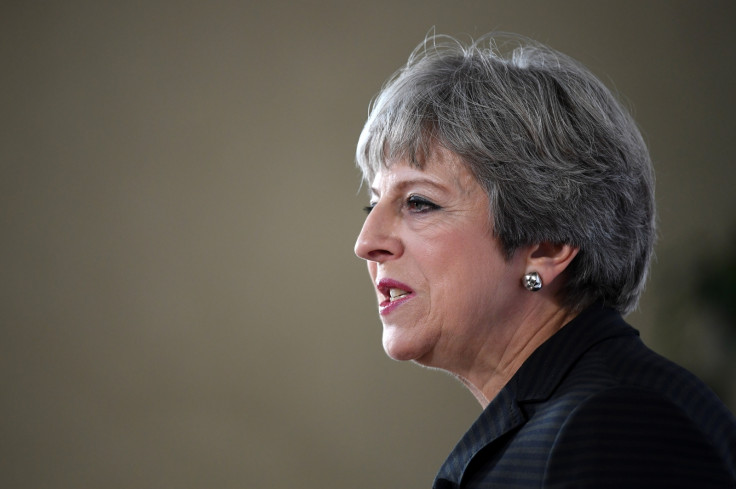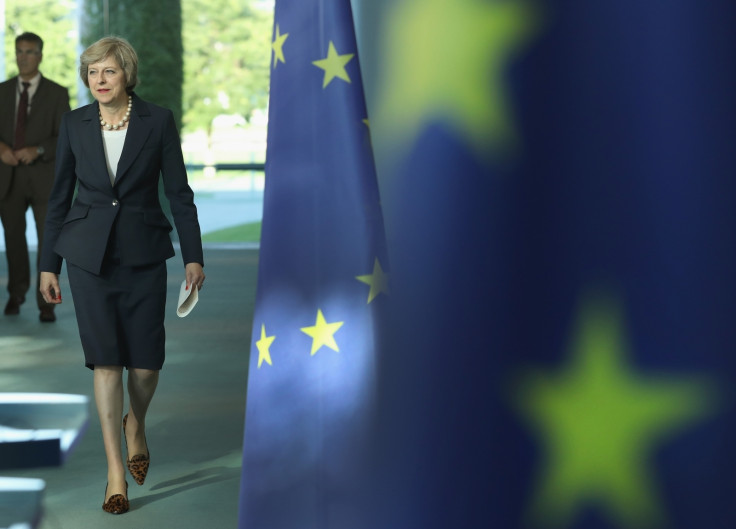The big reveal from May's Florence speech is that she's still negotiating with her own warring Cabinet
Politicians deliver hundreds of speeches. A few stand the test of time. This will not be one of them.

Some speeches are more important than others. When they are really important, you make sure the world knows in advance that a big one is coming. This is more than hype; it is good basic political, diplomatic and media management. If it matters, make sure people know that it matters, and make sure they listen.
Theresa May and her team did that bit right. We certainly all knew it was coming. We knew where it would be, and the Tuscan Tourist Board must have enjoyed the flurry the choice of venue has caused. Florence, surely, would enter the lexicon of speeches that historians would recall by a city name alone ... think Bruges and Thatcher; Chicago and Blair; Cape Town, from where Harold Macmillan's 'wind of change,' blew through Africa; Fulton, Missouri, where Churchill first spoke of the Iron Curtain; or Zurich, where he set out his vision – lest we forget – of a "kind of United States of Europe". Would that we had a leader of his calibre in British politics today.
Politicians deliver hundreds of speeches. Most are forgotten the moment they end. A few stand the test of time. These are the speeches which stand out from the norm, which land more than a dot on the public consciousness, and instead paint a broad brush stroke which shapes an agenda, shifts an argument, takes its place in the historical landscape, to be written about, studied, analysed, not just for days, but for years. These are the ones, therefore, which get the most attention from those making them, the most work, the most preparation, the greatest attention to detail. At least, they should.
There seems little doubt that Theresa May was indicating, for the past few weeks, that her Florence speech was to be seen in this category. She could easily have made the speech in London, or any other part of the UK. Choosing Florence said: 'This is special.' Signalling her intentions so far in advance reinforced that impression, that this was to be 'a moment' in the Brexit process.
The aim – with the talks between the UK and the EU seeming to stall, and degenerate into mild acrimony – was to bring order to the seeming chaos. It is one of the tasks of leadership. And with Cabinet divisions having spilled out over the summer, before plumbing new depths with Boris Johnson's self-indulgent pre-Florence essay on 'my kind of Brexit' last weekend, the interest mounted, and with it the need to ensure that the speech landed well. After the confusion, there would be clarity; after the division, there would be unity, and a gaggle of previously feuding Cabinet ministers were made to fly along, adding to the sense of this being different, an occasion, an event.
And so, the ground having been laid, Presidents and Prime Ministers with a busy schedule made sure, even if they didn't watch it live, that they got a decent briefing after the event. The EU chief negotiator Michel Barnier followed every word, waiting to react ahead of the next round of talks with UK Brexit Secretary David Davis. The Westminster-based media did their bit for UK-Italy air trade and Florentine hotels, landing in droves, having been briefed that this was the point at which the UK's Brexit strategy would finally become clear.

So did it? As I watched on TV, I tried my best to be fair. I tried to park my passionate belief that Brexit is the greatest catastrophe to hit Britain since the Second World War. More prosaically, I tried to see beyond the rather odd room, in a city with more than its fair share of beautiful venues, that looked like it was normally used for night classes. I tried to see beyond the dull backdrop with its forgettable slogans plastered behind the PM's head. I tried to listen, hard, to see the strategy and to hear the answer to the question that Mr Barnier, and the 27 heads of the remaining EU Governments have been asking, namely: 'What does Britain actually want?'
As the vacuous phrases ran into each other, as the cuts and pastes from previous utterances swilled around, it felt like Mrs May was reading an early draft that should have been sent back for more work. A lot more work. It was clear that she has been unable fully to focus on the negotiations with the EU, because she is still deep in negotiation with her own warring Cabinet.
Let us just remind ourselves that the referendum was 15 long months ago. Babies have been conceived, born and started to grow teeth in the time it has taken Mrs May to get from 'Brexit Means Brexit', via a Lancaster House speech, the triggering of Article 50, a botched election that lost two months of the 24 set aside for the departure process, and a Queen's Speech wholly dominated by the implications of Brexit, to 'Florence.' Are we really that further forward? Does she really think that this speech will deliver even on her most basic and unambitious objective, which was to add fresh impetus to the Barnier-Davis talks? I doubt it. As she came to a close, I was reminded of the title of Bob Geldof's book – Is That It?
Was there even a single clear and specific proposal about what the government wants to achieve from Brexit in the long-term? What were we meant to make of the talk about transition, when there was so little clarity about what it is we are transitioning to?
The Irish border issue continues to be addressed via wishful thinking. The consequence of her 'red line' hatred of the European Court of Justice was vague in the extreme. On the economic and trade arrangements post-Brexit, she appears to be no further forward. The least creative Prime Minister in living memory seemed to think that by calling on others to be creative we could magic our way out of the problems Brexit presents.
We also had it confirmed that Leave leader Boris Johnson truly has no shame. For her speech confirmed that from trade to timing, from budgets to borders, from sovereignty to security, there is now barely a Brexit promise that remains intact. We are not getting money for the NHS. We are paying to leave. We are not tearing up the rules. We are having to obey them for the foreseeable future.
Happily, she was also vague – "around two years" – about the possible length of any transition plan. I say happily, because as I detected at a CBI dinner last night, and on a school visit this lunchtime, I think anger at government incompetence is growing, along with fear that we truly are heading towards the edge of a cliff. Pushing the cliff-edge away by "around two years" may not be a substitute for a proper negotiating strategy founded on principles agreed by Cabinet. But at least it means there will be more time, not merely to prepare for exit, but to see, as the actual evidence about what departure means, whether we might not need to look at the whole question of departure again.
That was not a Prime Minister in control of a process. This was not a speech that changes the course of history, because the course she outlined was so unclear. We are still in 'anything goes' territory. That is the only good thing to come out of it.
© Copyright IBTimes 2025. All rights reserved.






















